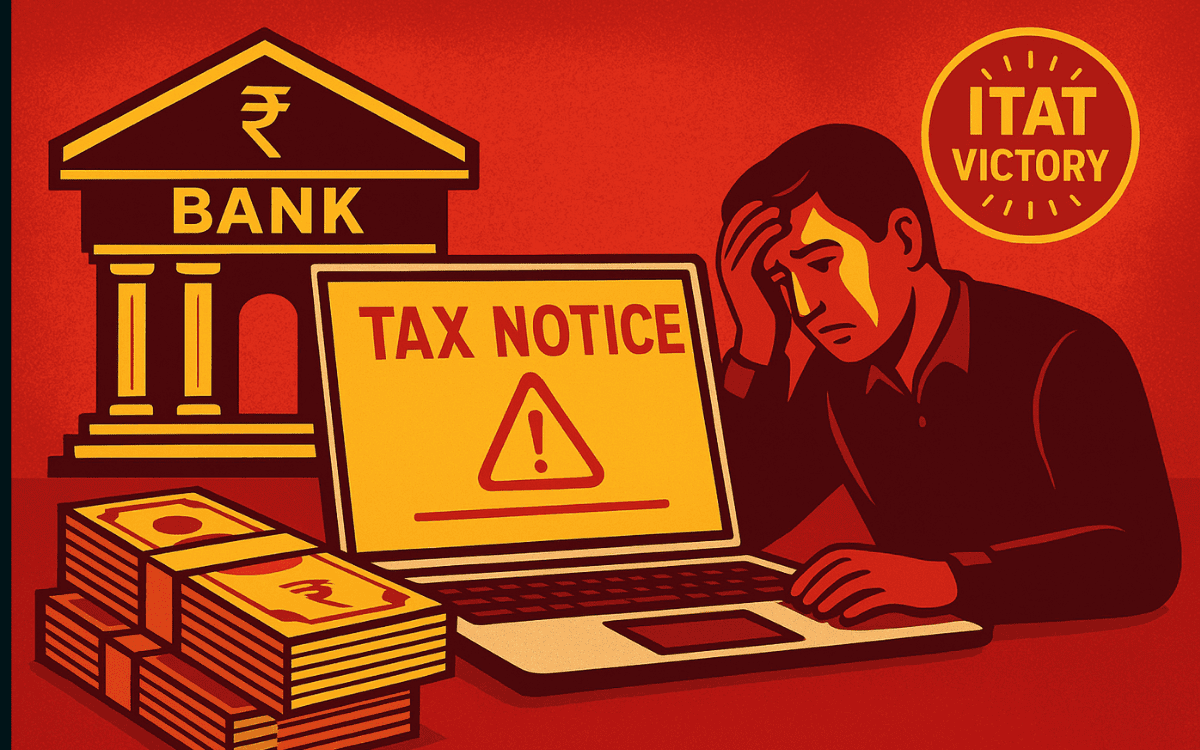In a case that highlights the thin line between legitimate cash deposits and tax scrutiny, a Delhi resident who deposited ₹8.68 lakh in his bank account received a tax notice from the Income Tax Department after authorities treated the amount as presumptive business income. The deposit landed the taxpayer in a protracted legal battle — only to emerge victorious in a ruling by the Income Tax Appellate Tribunal (ITAT).
🕵️ The Notice That Sparked the Fight
When the taxpayer (referred to as “Mr Kumar” in the media) deposited the cash, the assessing officer flagged it under Section 44AD (presumptive business income) of the Income Tax Act, assigning it as undisclosed earnings from business. Despite declaring salary, rental income and other sources, Mr Kumar faced a notice on the assumption that the ₹8 lakh deposit equated to business turnover.
⚖️ ITAT Steps In With Relief
The case eventually reached the ITAT, which ruled that the tax department lacked the required “incriminating material” for treating the deposit as business income. Crucially:
- No specific audit or detailed inquiry was triggered.
- Mobile-phone or similar digital evidence alone (unverified) was deemed insufficient.
- The addition lacked supporting documentation like loan agreements, invoices or business records linking the deposit directly to business earnings.
The tribunal’s findings reflect a larger legal principle: bank deposits do not automatically equal undisclosed business income. Without credible basis, such additions risk being struck down.
🧾 Takeaways for Taxpayers
The verdict offers important guidance for depositors and businesses alike:
- Maintain clear documentation for large deposits – explain the source, even if it’s personal savings or gift.
- Deposits in bank accounts can trigger scrutiny, especially when they appear sizable or fall outside routine patterns.
- Tax authorities need substantiation before assuming business income — records, connections and clear audit trails matter.
- If you receive a notice, appeal wisely — tribunals may reject actions lacking credible evidence or proper procedure.
🚨 Why This Matters
The ruling comes at a time when the Income Tax Department is intensifying scrutiny of unexplained deposits and cash flows — including issues of deposits, gifts, loans and unverified business income. This case reinforces the legal requirement that demands not just suspicion but proof.
In closing: while depositing cash in a bank remains lawful, routine banking behaviour doesn’t shield a person from notice receipt. But good record-keeping, transparent source declarations and timely response can safeguard against mis-characterisation of deposits. This case may serve as a precedent for thousands of taxpayers who find themselves being assessed over similar issues.
